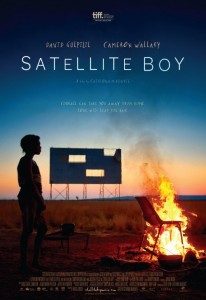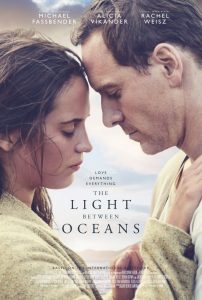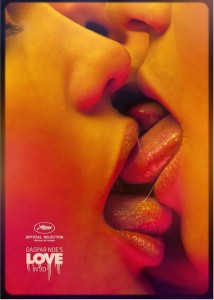 “This country is a powerful thing… If you want to grow up, you better take notice”.
“This country is a powerful thing… If you want to grow up, you better take notice”.
So says Jagamarra (David Gulpilil), the elderly Aboriginal leader, to his mischievous grandson Pete (Cameron Wallaby) at the beginning of writer/director Catriona McKenzie’s feature debut, Satellite Boy, and the message radiates through the entirety of this lovingly made and brilliantly realized locally made film.
Set in the Kimberley of North Western Australia, the story begins with the ten year old aboriginal boy Pete living with his Grandfather in an abandoned drive in cinema. Abandoned by his Mother who has left for the city for an education, Pete routinely runs afoul of the local law with his best friend Kalmain (Joseph Pedley). When an industrial company comes to the drive in with the intention of bulldozing it, and a court date looming over Kalmain’s head, the two boys head across the country to the big city to try and change their fates. Soon enough they become lost and Pete must draw on Jagamarra’s teachings to survive.
Satellite Boy is one of the more lighthearted Aboriginal themed movies of recent times, and it might be too easy for the casual viewer to overlook just how powerful and complex the film is. There is no slum camps or petrol addictions here – just the hope that we can all find our way. From the rustic abandons of the white man that surrounds him, Pete is a lost child – both literally and spiritually – and he must choose if he wants to be a part of that world that engulfs him, or the Aboriginal tradition of his ancestors. It is ultimately a film about crossroads and choosing your own path through life. It is also a touching portrayal of adolescent youth and the friendship of the two boys at the heart of the story. McKenzie handles all these elements with incredible sensitivity and creates a moving and thoughtful experience for movie goers.
While a good deal of the focus around the release of the picture will inevitably go to a fine performance from Australian film veteran Gulpilil, the real find here is Cameron Wallaby. The young actor, other than also giving an excellent and surprisingly nuanced performance, has a unique and fascinating screen presence which will inevitably recall in some viewers Jean-Pierre Leaud’s turn as the rebellious Antoine Doinel in The 400 Blows, but deserves to be considered on its own merits. Also excellent is Pedley as his friend in a less rewarding, but also fully developed role.
Visually the film is one of the most sumptuous depictions of the Australian outback in cinema. Geoffrey Simpson’s vivid widescreen cinematography captures the beauty of the outback and Sam Hobbs’s beautifully designed sets (especially the drive-in) perfectly. David Bridie also provides a delightful score that complements the images and story beautifully.
The films only flaw comes in the narrative toward the end. The discovery of a handgun changes the film tonally, taking it into uncomfortable territory which the film had so wonderfully avoided until that point and feels false. Despite a brief running length, an extended third act seems like it’s starting another separate story, that even though it fits thematically, still feels unnecessary. These few quibbles aside, the film is still well written. The characters are richly fleshed out and even if it doesn’t necessarily break any original ground as a road movie, it covers the same old ground extremely well.
Well-made, warm and effective, Satellite Boy marks the feature debut of a talented new voice in cinema and the potential for a great career in acting for Wallaby.
Satellite Boy is in Australian cinemas from 20 June through Hopscotch Films.





